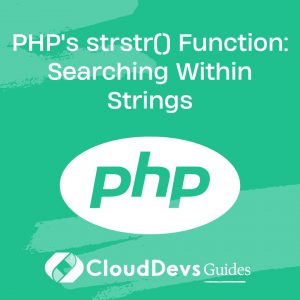PHP Q & A
What is a PHP session?
In PHP, a session is a mechanism that allows you to maintain stateful data across multiple HTTP requests for a specific user. Sessions are essential for building web applications that require user authentication, shopping carts, and personalized user experiences. Here’s a detailed explanation of PHP sessions:
Session Initialization:
- Session Start: A session begins when a user visits a web page that calls the `session_start()` function. This function initializes or resumes a session, generating a unique session ID for the user.
Session Data Storage:
- Data Persistence: Once a session is started, you can store data in the `$_SESSION` super global array. This array is used to store variables and values that persist across multiple requests within the same session.
```php session_start(); $_SESSION['username'] = 'John'; ```
Unique Session Identification:
- Session ID: A session ID is a unique identifier generated for each user session. It is typically stored as a cookie on the user’s browser or passed as a URL parameter. This ID allows the server to associate subsequent requests with the correct session data.
Session Lifetime and Expiration:
- Session Timeout: Sessions have a defined lifetime, which can be set in the PHP configuration (`session.gc_maxlifetime`) or with the `session_set_cookie_params()` function. When a session remains inactive for a specified period, it expires.
Common Use Cases:
- User Authentication: Sessions are commonly used to track user login status. For example, after a successful login, a user’s authentication status can be stored in a session variable.
- Shopping Carts: In e-commerce applications, sessions can be used to maintain shopping cart contents across multiple page visits.
- Personalization: Session data can be used to personalize user experiences by storing preferences or user-specific information.
Security Considerations:
- Session Security: To ensure session security, session IDs should be generated securely and not exposed in URLs. It’s also crucial to validate and sanitize session data to prevent security vulnerabilities.
PHP sessions are a fundamental mechanism for maintaining user state and data persistence in web applications. They enable developers to create interactive and personalized web experiences by storing and managing user-specific information across multiple HTTP requests.

Previously at


Argentina

GMT-3
Full Stack Engineer with extensive experience in PHP development. Over 11 years of experience working with PHP, creating innovative solutions for various web applications and platforms.



